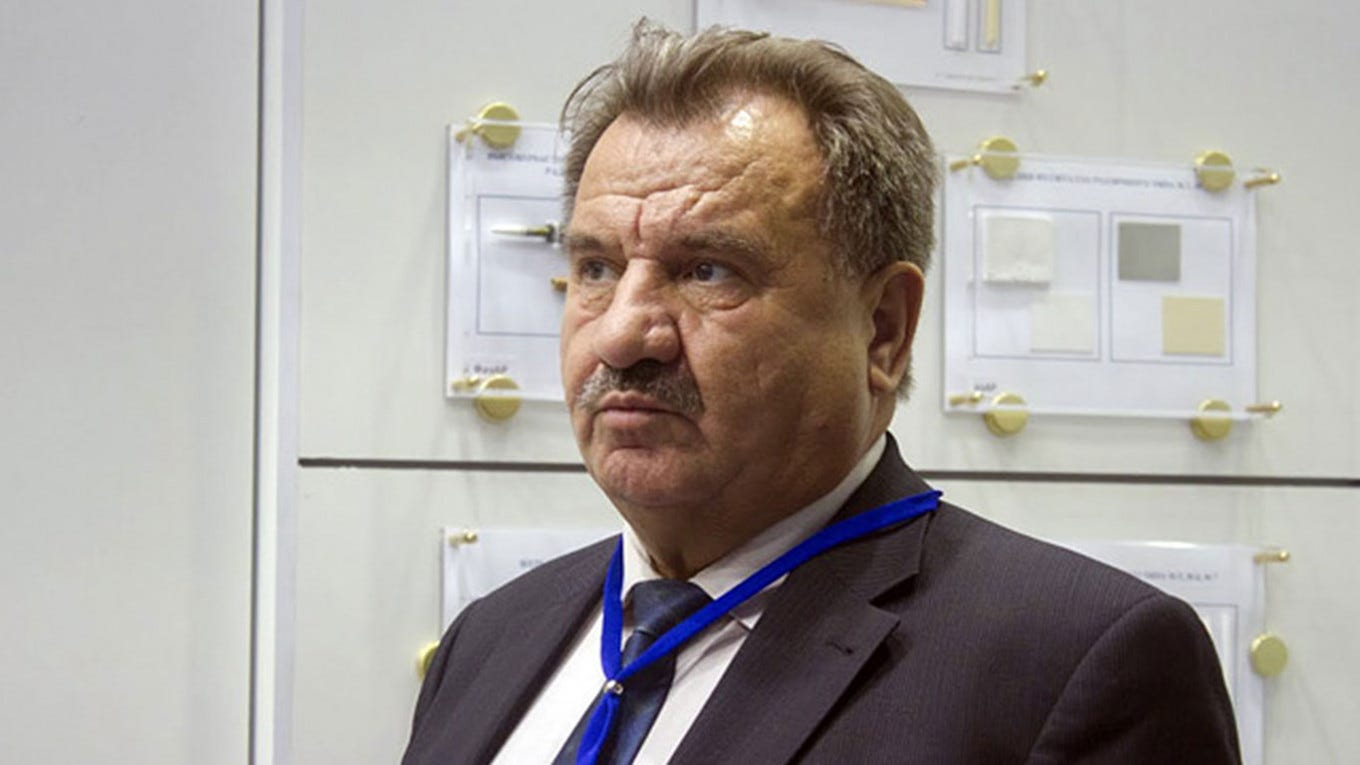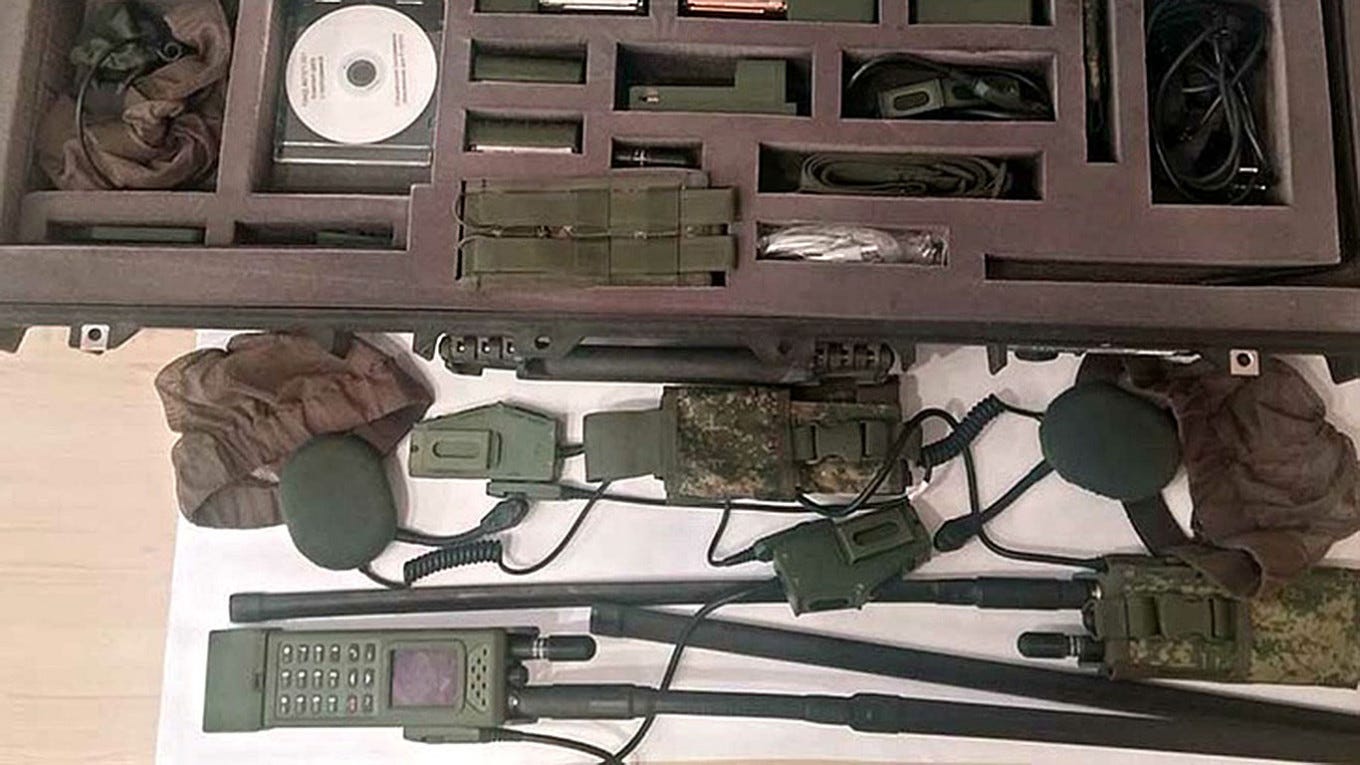Moscow Times: How corruption in the Russian army and military-industrial complex derailed Putin's blitzkrieg in Ukraine
Updated: 05/11/2022
“This cannot be, you are playing a prank on us,” Western experts react to photographs of the Russian Orlan drone that fell into the hands of the Ukrainian military. The photos and videos published by the Ukrainians show that a mineral water bottle is used in the Orlan fuel supply system, and a Canon camera attached with Velcro and glue is responsible for photo and video shooting. At the same time, Orlan-10 costs the Russian budget $100,000.
We can’t repeat: how the Russian defense complex failed in import substitution
The reason for this high cost may be corruption. AT Last year, it became known about a scam with the supply of components for Orlan-10 drones. The district court of Kazan seized a suitcase with 48.6 million rubles, which the FSB operatives for Tatarstan seized during a personal search from the head of a company that worked on a defense order on the Orlan-10 unmanned systems project. In connection with the alleged "kickback" in Kazan, the 51-year-old deputy director for financial matters of STD-Radiks Andrey Polshkov was detained. He was accused of colluding with Pavel Shatskikh, the director of JSC Kazan Plant Elektropribor, and embezzling 446 million rubles from the budget allocated in 2017-2020 as part of the state defense order, by overestimating the cost of components for the production of Orlan-10 drones in a St. Petersburg LLC "Special Technology Center".
The embezzlement began far from last year: back in 2017, the Central Bank signaled that banks working with the money of the Ministry of Defense were involved in shadow operations, cashing out and withdrawing capital. This conclusion was reached by the Central Bank, having checked 27 credit institutions through which the funds of the state defense order pass. From 50% to 70% of the state defense order goes into "cashing out ", a Vedomosti source close to the Central Bank and Rosfinmonitoring reported. The state program for the modernization of weapons, in force from 2011 to 2020, was designed for 20 trillion rubles.
No protection
On April 21, 2022, fire brigades, ambulances, and Mi-8 helicopters were drawn to the Tver embankment of the Volga, shrouded in clouds of dense black smoke. The Central Research Institute of Aerospace Defense Troops (TsNII VKO) was on fire. The massive four-story building, occupying an entire block, burned to the ground, the fire was extinguished only in the morning of the next day, 22 people died.

The secret institute that developed the Iskander missile system, also known as NII-2, burned down due to faulty wiring. While Tver investigators are looking for those responsible for violating fire safety, their colleagues from the Main Military Prosecutor's Office are studying more than 350 volumes of the criminal case on embezzlement at NII-2. In this case, back in February 2019, retired Major General Sergei Yagolnikov, who then headed NII-2, was arrested. Yagolnikov has an impressive biography: he has worked at NII-2 since the late 1970s, and has more than 300 scientific papers behind him as a doctor of technical sciences and a retired military man. But, according to investigators, in recent years he built a scheme through which multi-million sums were stolen from the budgets allocated by the Ministry of Defense for secret developments.
The arrest of Yagolnikov was preceded by complaints from dozens of Tver pensioners to the police. The pensioners complained about the local company "Radio Engineering and Information Systems of Aerospace Defense" (RTIS), which suddenly began to demand from them supposedly paid money under certain contracts. FSB officers became interested in the messages of the Tver pensioners.
It turned out that, according to the reports of RTIS, in 2014-2018, pensioners from Tver created the Sirena system, which monitors missile launches from Alaska, and the Akatsiya aerospace communications project by order of the Ministry of Defense. In reality, according to investigators, all the work was carried out by employees of NII-2 under the leadership of Yagolnikov. And RTIS, in which the family of the major general owned 19%, simply received money from the Ministry of Defense. Then the money was distributed among hundreds of "dead souls" - the same pensioners who had nothing to do with the development of RTIS. So, according to the investigation, Yagolnikov stole almost 300 million rubles.
Without missiles
On March 25, 2022, the Lviv authorities announced rocket attacks from the Russian army. On the same day, the former commercial director of the Tactical Missile Weapons Corporation (KTRV) Viktor Vagan was taken into custody in the Voskresensky Court of the Moscow Region. Vagan was sentenced to eight years in a strict regime colony, having been found guilty of stealing weapons. Three more people received different terms in general regime colonies, including the general director of the Turaevsky Machine-Building Design Bureau Soyuz, which is part of the KTRV, Nikolai Yakovlev.
The criminal case has been dragging on since 2018, and the theft was committed even earlier. In 2010, Vagan and Yakovlev learned that it was planned to dispose of Kh-55 aviation cruise missiles at one of the Moscow Region test sites. As a result, the rocket engines were sold to the Ukrainian company Motor Sich, and the remaining scrap was sent for processing. Motor Sich paid $2.4 million for the delivered engines.
In 2011, the scam repeated itself. Everyone at the same training ground (its former director received five years in prison) had to dispose of another 37 Kh-55 missiles. Instead, missile parts and explosives from warheads were used by KTRV to manufacture 15 new Kh-31A air-to-surface missiles. The Ministry of Defense paid 255 million rubles to the KTVR for these missiles.
No connection
In 2017, Khalil Arslanov, Deputy Chief of the General Staff of the Russian Armed Forces, received the rank of Colonel-General. Two years later, he was accused of fraud on an especially large scale, and in February 2020 he was arrested by the FSB. Soon another general, Alexander Ogloblin, testified against Arslanov.
Ogloblin said that in 2015, under the patronage of Arslanov, he received the post of head of the 1st communications department of the Ministry of Defense. Just then, the program of digitalization of the Russian army was in full swing, and Ogloblin needed to look for suppliers of equipment and negotiate a price increase. So, for example, fraud in the purchase of routers through Voentelecom JSC assumed an extra charge of 20-25%. According to this scheme, 1.6 billion rubles were stolen, Ogloblin pleaded guilty and in mid-February 2022 received four years in a general regime colony.
Arslanov does not admit his guilt, and his case is still being considered. At the same time, according to the version of the investigation, based on the testimony of Ogloblin, the main emphasis in the scam was placed on the new generation radio station Azart, the prices of which were doubled. Back in early 2022, the investigation estimated the damage from the purchase of 60,000 Azarts at 6.7 billion rubles. But in early May, the Prosecutor General's Office approved and sent to the court the accusation in the Arslanov case. The episodes related to Voentelekom remained in the case, but the alleged fraud with Azarty was not included in it.
Without boats
In late autumn 2019, the northern divisions of the Russian Guard received a batch of snowmobiles and boats. The latter was intended to protect the Arctic ports, including Tiksi in the Republic of Yakutia and the Yamal Sabetta. But on the very first combat duty, the hulls of the boats could not stand the frost and cracked.
During the investigation, the Investigative Committee came across five employees of the Russian Guard, who are now accused of taking bribes and embezzling budget funds. The investigation considers the initiator of the scam to be Colonel Shalva Museliani, who in May 2018 resigned from the main department of the private security of the Russian Guard, where he was responsible, among other things, for fighting crime.
The scheme was simple: in August 2018, a tender for the purchase of snowmobiles and boats was published on the Unified Trading Platform. The cost of the tender was increased in advance by 10% of the expected rollback - this was taken care of by Sergey Vorobyov, who is responsible for technological policy in the Russian Guard. The only participant and winner of the tender was the Defense Technologies concern. The contract amount was 376.2 million rubles. In the spring of 2019, Museliani agreed with the co-owner of Defense Technologies on a rollback of 30 million rubles. Of this amount, according to the investigation, the officer received 19 million rubles.
For this money, the Russian Guardsmen who accepted the equipment turned a blind eye to its shortcomings. The hulls of the boats were made of poor quality polyethylene, the investigation is sure, and did not pass the test. The damage from the actions of the National Guard is estimated at 262 million rubles. Museliani has been put on the wanted list.












Great reporting, Ms Lautman! Thank you!